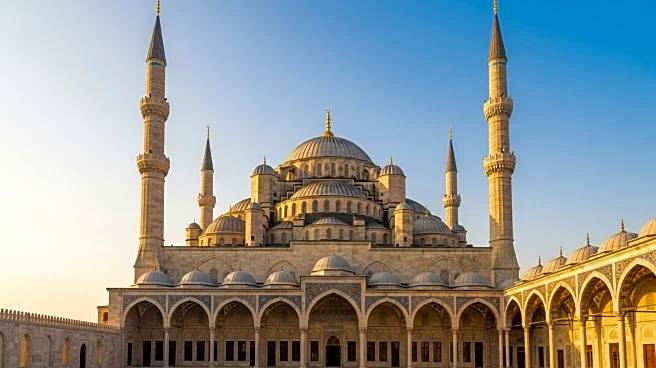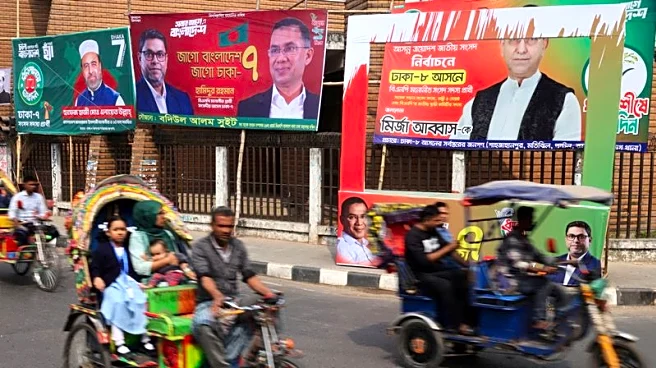What's Happening?
Iraq has announced the reopening of the Great Mosque of al-Nuri in Mosul, which was destroyed by ISIS militants in 2017. The mosque, known for its leaning minaret, has been reconstructed with the support of UNESCO and the United Arab Emirates. The restoration of the mosque marks a significant milestone in Mosul's recovery from the devastation caused by ISIS, which ruled the city with terror and expelled Christians while massacring and enslaving members of the Yazidi minority. The successful military campaign by Iraq to defeat ISIS allowed the city's residents to escape the militants' control and move to IDP camps, eventually leading to the retaking of Mosul by the Iraqi army.
Why It's Important?
The reopening of the Great Mosque of al-Nuri is a powerful symbol of resilience and recovery for Mosul and Iraq as a whole. It represents the defeat of ISIS and the restoration of cultural heritage that was nearly lost to extremism. This event highlights the importance of international cooperation in rebuilding war-torn areas, as seen in the collaboration between UNESCO and the UAE. The restoration of the mosque not only serves as a cultural and historical landmark but also as a beacon of hope for the people of Mosul, signaling a new chapter in their city's history and the possibility of peace and stability.
What's Next?
The reopening of the mosque may lead to increased efforts to restore other cultural and historical sites in Mosul and across Iraq. It could also encourage further international support and investment in the region's recovery and development. As Mosul continues to rebuild, there may be opportunities for economic growth and improved living conditions for its residents. The Iraqi government and international partners might focus on enhancing security measures to prevent the resurgence of extremist groups and ensure the safety of the city's inhabitants.
Beyond the Headlines
The restoration of the Great Mosque of al-Nuri raises important questions about the preservation of cultural heritage in conflict zones. It underscores the ethical responsibility of the international community to protect and restore historical sites that are threatened by war and extremism. Additionally, the mosque's reconstruction may inspire similar initiatives in other regions affected by conflict, promoting cultural diplomacy and fostering mutual understanding among diverse communities.










